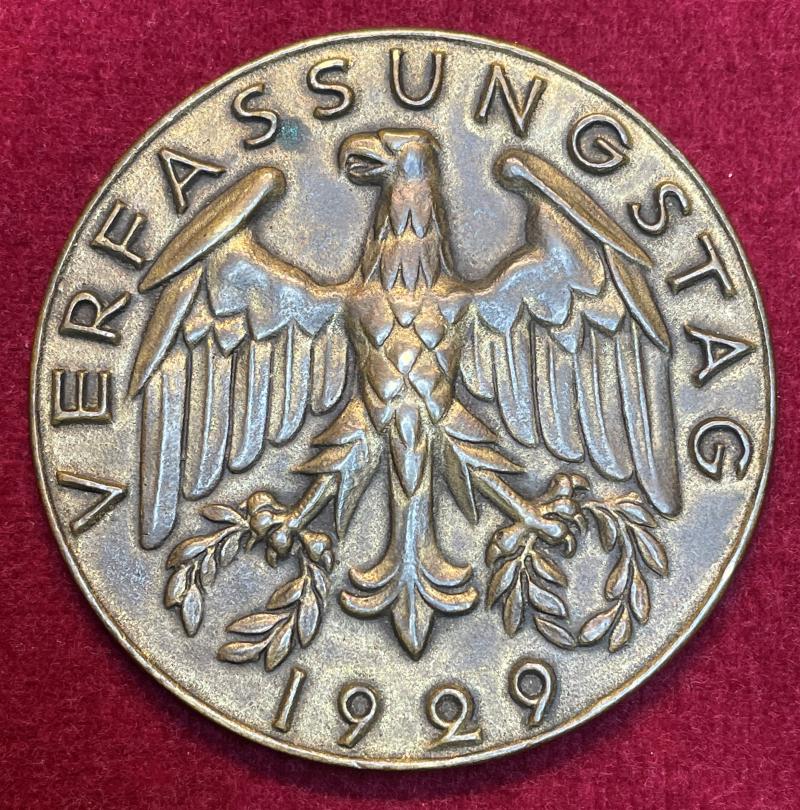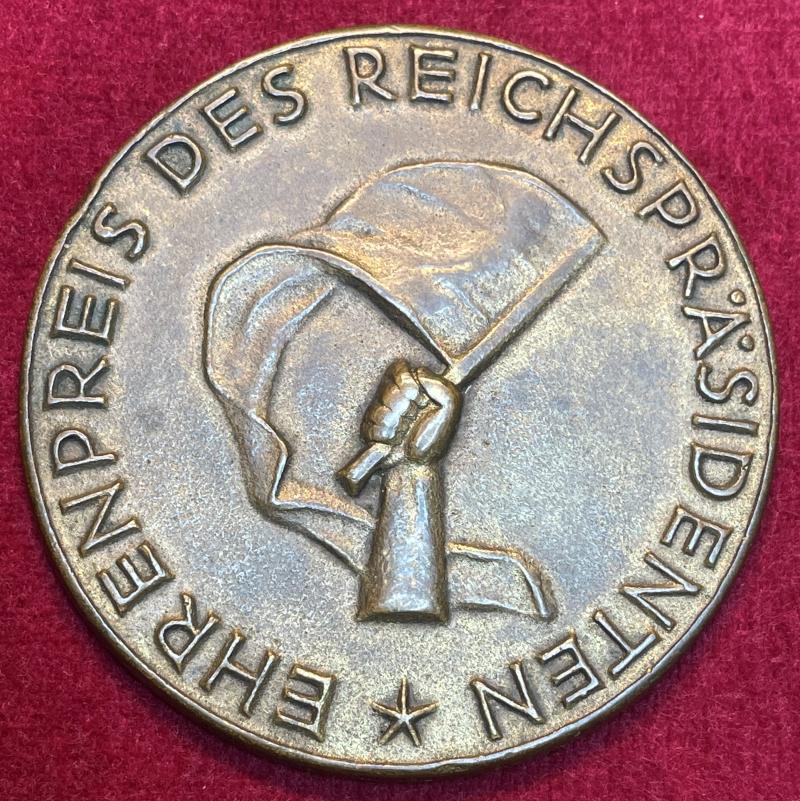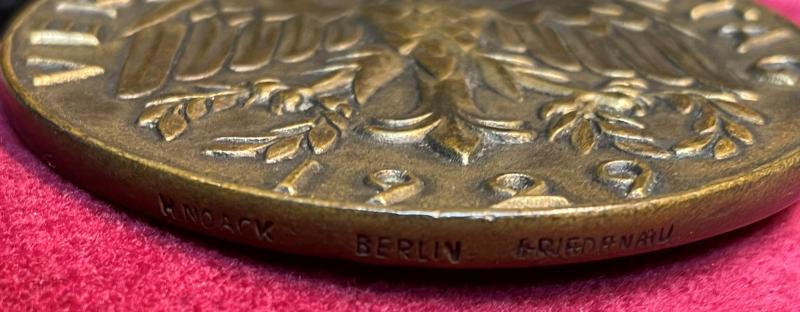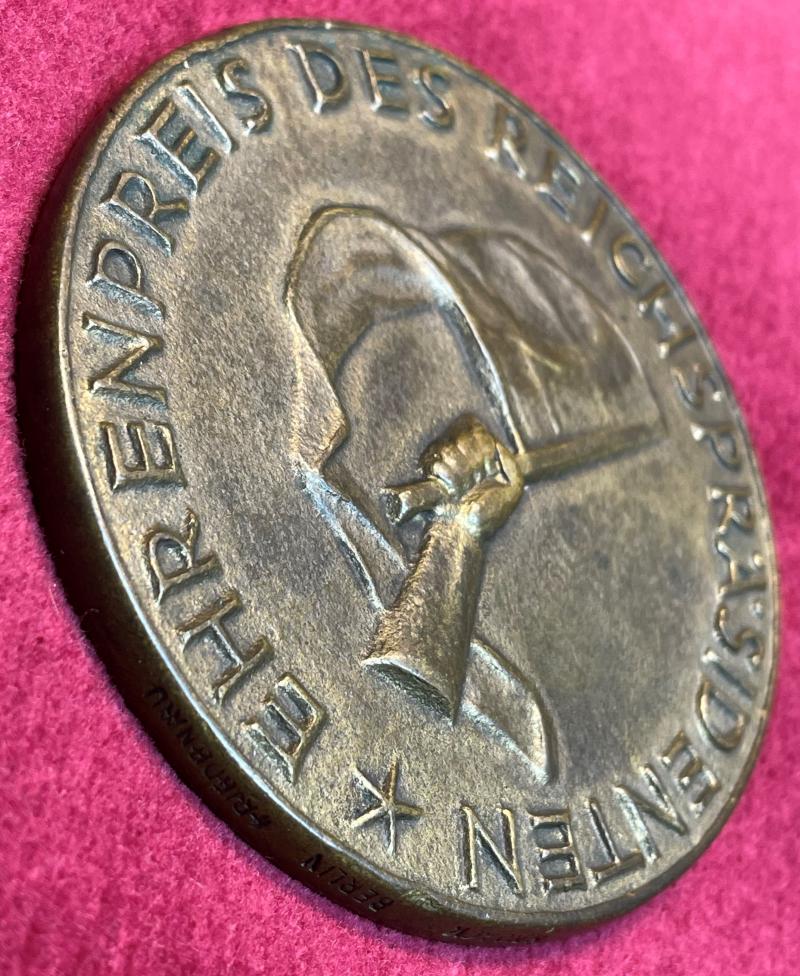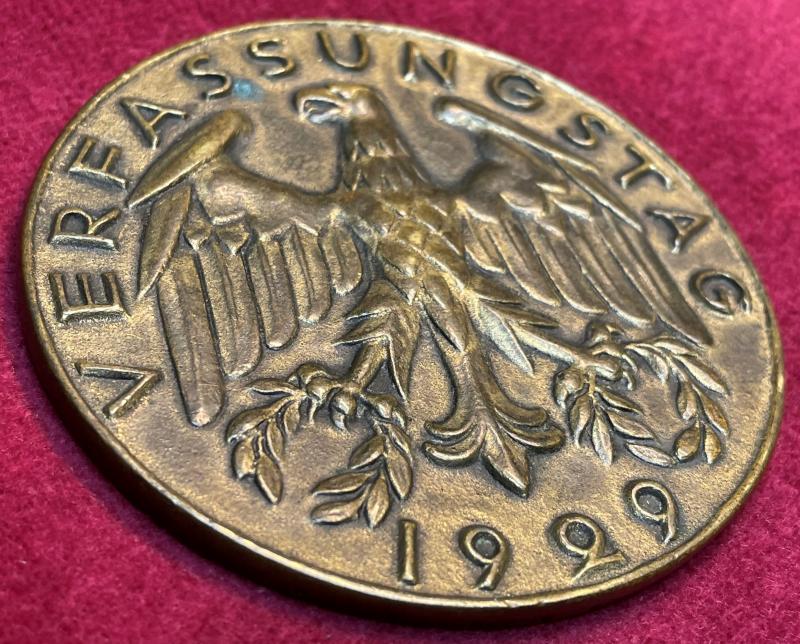Deutsche Reich Auszeichnungsmedaille "Ehrenpreis des Reichspräsidenten" in Bronze 1929
In a very good condition a Medal "Honorary Prize of the Reich President" in bronze 1929
Frontside: Verfassungstag 1929. Weimar Eagle holding two wreaths
Backside: Ehrenpreis des Reichspräsidenten. Hand holding a large banner flag.
Maker marked on the side H.Noack from Berlin Friedenau
Size +/- 6.7 cm and 120 gramms heavy
Background information:
On July 31, 1919, the draft of the Weimar Constitution was accepted in the third reading. 262 MPs voted in favor, 75 against, 84 did not appear. On August 11, MPs signed the instrument, which came into force on August 14. This memorable event should be recorded in a dignified manner.
The Finnish Republic asks about the German national holiday
When the Finnish Foreign Ministry inquired in November 1919 which national holiday was being celebrated in Germany, the debate as to whether May Day or Constitution Day was in full swing. The decision was made in 1921, 11 August was chosen as the national holiday as constitution day and celebrated as “the hour of birth of democracy in Germany”. The organization of the celebration was in the hands of the institution Reichskunstwart, staffed by Edwin Redslob (1884-1973) since 1921. While the celebrations in 1921 were still academic and modest, the following ones were more elaborate with ceremonial sessions and open days in the Reichstag, military parades, marches, sporting events and folk festivals. But this did not make the national holiday any more popular.
Sport, unity of the nation
The Weimar Constitution had abolished all medals and decorations, except for sport. Sporting competitions were among the key events on Constitution Day, reaching large sections of the population. The winners received the President's Honorary Award, which was donated in 1924 and is one of the few official awards of the Republic. Linking the award to important events proved to be a clever propaganda move. The end of the Rhineland occupation by France and Belgium, which had existed since 1920, was a welcome first occasion in June 1930. In 1931 and 1932 it was the nationwide celebration of the 100th anniversary of the death of the great Germans, the reformer Heinrich Friedrich Karl Reichsfreiherr von und zum Stein (1757-1831) and the poet Johann Wolfgang von Goethe (1749-1832).
Code: 51261
150.00 EUR



